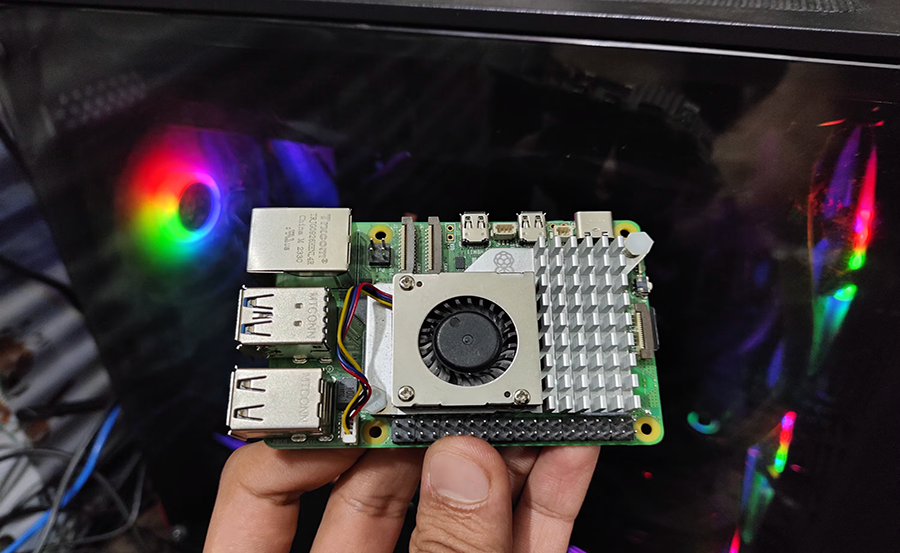The Raspberry Pi Compute Module is a remarkable innovation marrying hobbyist aspirations with industrial-grade utility. Since its inception, it has inspired a myriad of applications, from simple educational projects to complex industrial designs. But what makes the Compute Module tick, and why are enthusiasts and professionals alike drawn to its capabilities? In this article, we’ll dig into the aspects that make the Raspberry Pi Compute Module a unique choice, and where it stands in terms of pros and cons.
What is a Raspberry Pi Compute Module?
The Raspberry Pi Compute Module is essentially a version of the Raspberry Pi designed for embedded systems. Unlike the typical single-board Raspberry Pis, the Compute Module fits into a standard DDR2 SODIMM connector, replicating parts of the original Pi while adding benefits specific to industrial and commercial applications.
The Evolution of Raspberry Pi Compute Modules
Since the release of the original Raspberry Pi, the Compute Module has evolved through several iterations, each enhancing its performance and functionality. From the Compute Module 1 to the latest Model 4, each version has brought more processing power and capabilities to the table. These developments have expanded its range of use, cementing its place in both hobbyist and professional realms.
Pro Tip:
Experience seamless streaming with 1 Month FalconTV Subscription designed to provide instant access to live TV, movies, and series in stunning HD quality.
The Architecture of Raspberry Pi Compute Module
The architecture of the Compute Module mirrors the DNA of its Raspberry Pi family. With core specifications that include a Broadcom processor, RAM, and onboard flash storage, it offers the versatility typical of the Raspberry universe. However, it eliminates certain components to slim down its form factor and optimize it for integration into other devices.
The Pros of Using Raspberry Pi Compute Module
While the Raspberry Pi Compute Module presents several advantages, it’s essential to understand them in the context of both personal and industrial usage.
Compact and Customizable Design
One of the principal attractions of the Compute Module is its small and adaptable design. This compactness allows it to be embedded within larger products, giving developers the freedom to build around a powerful computing core without the bulk of unnecessary components.
Cost-Effectiveness
Another significant advantage is cost-effectiveness. Raspberry Pi Compute Modules offer a considerable computing power per dollar ratio, making them an excellent option for projects with tight budgets. Unlike other embedded modules, Raspberry Pi’s reputation for affordability remains intact with the Compute Module series.
Broad Community Support
The vast community around Raspberry Pi ensures that troubleshooting and project development are supported by a collective wealth of knowledge and resources. This adds an ease of use to the Compute Module, as common issues and curiosities are often addressed within the community.
- Wide range of available tutorials and guides.
- Access to forums for problem-solving.
- Collaborative project-sharing platforms.
The Cons of Using Raspberry Pi Compute Module
Despite its benefits, the Raspberry Pi Compute Module isn’t without drawbacks, which might affect your decision depending on your needs.
Limited I/O Options
Whilst the Compute Module excels in many areas, there are limitations to its Input/Output (I/O) capabilities compared to other embedded solutions. For some high-demand applications, these limitations might necessitate additional hardware modifications.
Lack of Onboard Connectivity
Another con that might not sit well with everyone is the absence of onboard connectivity features. Modules typically require additional components to enable wifi or Bluetooth connectivity, which can complicate simple setups and augment costs.
Steeper Learning Curve
The Compute Module, due to its nature, may present a steeper learning curve for beginners. It’s important to note that the module is primarily aimed at users who have experience with embedded systems and can pose a challenge to those without such a background.
The Perfect Companion for IPTV: A Look into IPTV Sports
While we’re discussing the capabilities of the Raspberry Pi Compute Module, it’s essential to address its role in enhancing digital entertainment experiences, particularly in IPTV. One standout example is IPTV Sports. It positions itself as the premier IPTV service, especially for sports enthusiasts. IPTV Sports provides a robust platform to enjoy high-quality streaming and live sports events, leveraging Raspberry Pi’s capabilities to offer a seamless viewing experience.
Why IPTV Sports Stands Out
IPTV Sports offers a competitive edge as a cheap IPTV for sports, excelling in stream quality, content variety, and user-friendliness. Here’s why it’s acclaimed worldwide:
- Reliable and high-quality streams of live sports.
- Affordable subscription plans tailored for sports fans.
- Diverse range of channels, catering to an international audience.
Setting Up IPTV Sports with Raspberry Pi
Integrating IPTV Sports with a Raspberry Pi Compute Module revolutionizes the notion of a home entertainment system. By leveraging the processing capability of the Compute Module, users can expect smooth streaming and a seamless interface, enhancing the IPTV experience.
IPTVSports: The Future of Sports Viewing
In a rapidly evolving digital content landscape, having reliable access to sports content through platforms like IPTVSports empowers users. It turns traditional viewing on its head, offering users the flexibility of accessing live sports from anywhere at any time, further enhancing the appeal of Raspberry Pi-based solutions.
Integrating Raspberry Pi Compute Module in Industrial Applications
The true power of Raspberry Pi Compute Modules is revealed when considering industrial applications. It brings a potent combination of flexibility and control, crucial for various enterprise uses.
Role in Manufacturing and Automation
Thanks to its powerful processing capability, the Compute Module is used in manufacturing, enabling automation of complex tasks. It can be embedded within machinery to facilitate real-time data processing and controls, streamlining operations and enhancing productivity.
IoT Enabled Computing
Another industry benefiting from the Compute Module’s prowess is the Internet of Things (IoT). As devices become smarter and more interconnected, the Compute Module provides a seamless interface and a reliable processing unit to facilitate IoT solutions.
Deployment in Smart Infrastructure
From smart cities to home automation systems, the Compute Module’s adaptability makes it a favored choice. Its ability to integrate seamlessly into infrastructure projects allows for innovative developments in public amenities and residential automation.
Weighing Your Options: Should You Choose the Raspberry Pi Compute Module?
The choice to employ a Raspberry Pi Compute Module depends significantly on the specific project requirements and what you hope to achieve. It’s an ideal choice for those looking to balance cost, size, and performance.
Understanding Your Needs
Before deciding if the Compute Module is right for your project, it’s important to carefully consider your technical and functional requirements. Evaluate your need for processing power, connectivity, and flexibility.
Considerations for Hobbyists
If you’re a hobbyist, the learning curves and modding opportunities may be seen as added benefits. The Compute Module provides a platform for complex projects without the constraints of size or budget. However, be prepared for the challenges that come with greater customization.
Assessing the Commercial Impact
For businesses, the appeal lies in its potential to innovate and embed computing into products cost-effectively. Its modular design allows easy integration, making it an excellent solution for companies looking to incorporate computing without reinventing the wheel.
Realities of the Raspberry Pi Compute Module Market
It’s worth noting that like any other technology, the Compute Module market is subject to fluctuations. Demand spikes and availability might impact your projects’ timelines or costs, a factor that prospective users must stay mindful of.
Supply Chain and Availability
Given the Compute Module’s widespread use, supply issues have arisen at times, impacting availability. It highlights the importance of planning purchases and considering alternative solutions should there be prolonged shortages.
Industry Trends and Future Developments
With technology advancing rapidly, keeping abreast of industry trends ensures you’re leveraging the latest Raspberry Pi advancements. As future versions are anticipated, they may offer enhanced features and interfaces, further expanding potential applications.
FAQs About Raspberry Pi Compute Module and IPTV Sports

-
What exactly is a Raspberry Pi Compute Module?
The Raspberry Pi Compute Module is a versatile form of the Raspberry Pi, designed to be used in larger, embedded projects. It provides core features of a Raspberry Pi, allowing it to be integrated seamlessly into loads of industrial and commercial applications.
-
How does IPTV Sports compare to traditional sports broadcasting?
IPTV Sports offers a more flexible and cost-effective alternative to traditional sports broadcasting. It allows users to access live and recorded sports events from various devices as long as an internet connection is available, providing unprecedented accessibility and convenience.
-
Can I use the Compute Module for an IPTV setup?
Absolutely. The Compute Module’s processing capabilities are well-suited for managing IPTV configurations. It handles streaming well, offering a smooth viewing experience without the need for traditional set-top boxes.
-
Is the Compute Module suitable for beginners?
While the Raspberry Pi Compute Module can be challenging for newcomers due to its technical demands, enthusiasts with some background in embedded systems or Raspberry Pi may find the learning curve manageable and rewarding.
-
Why is the Raspberry Pi Compute Module a good choice for industrial applications?
Its compact size, power efficiency, and robust performance make it ideal for embedding in custom solutions. It supports diverse industrial applications, from manufacturing automation to smart infrastructure and IoT systems.
-
Are there any limitations to consider with Raspberry Pi Compute Modules?
Yes, potential limitations include restricted I/O capabilities and the need for additional components for connectivity. However, these can often be mitigated with the right setup and additional hardware.
As technology continues to evolve, the Raspberry Pi Compute Module remains a core solution for hobbyists and industries alike. Whether embracing it for an IPTV setup like IPTV Sports, or integrating it into larger projects, it offers a world of possibilities.
Comparing App Availability on Formuler Z and Other Devices




